National Gallery Prize for Young Art 2007
Photo: David von Becker
Award winner
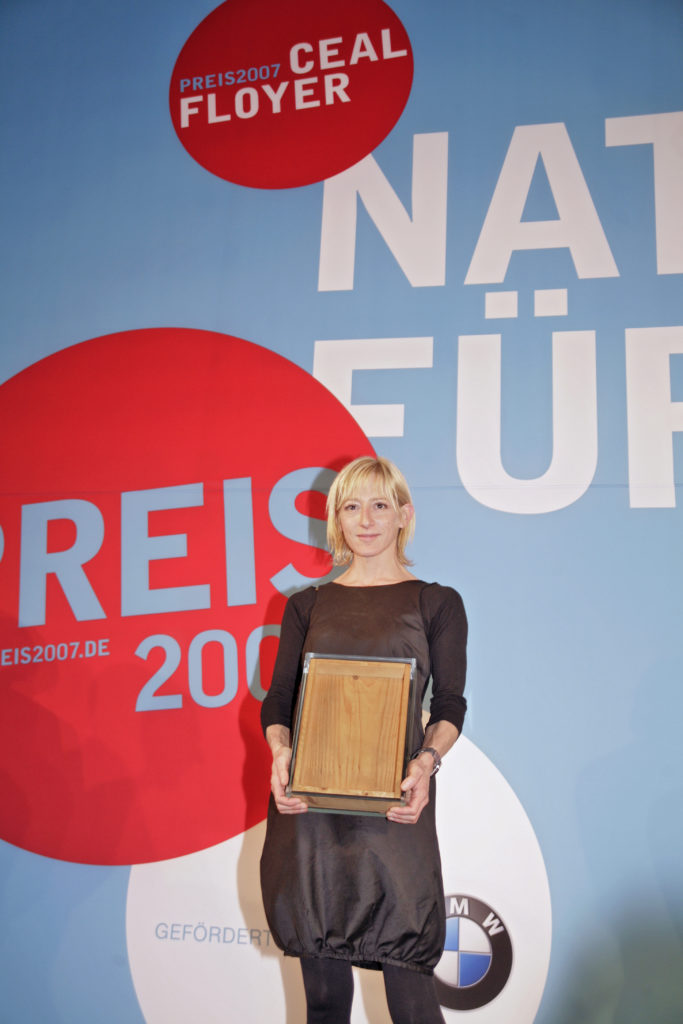
Ceal Floyer
(born 1968 in Karachi, Pakistan, lives and works in Berlin)
Ceal Floyer is interested in hidden potentials, in the invisible, in her video works, installations and sculptures. With minimal interventions, she plays with the audience’s perception and in this way exposes what is usually not visible.
Shortlist
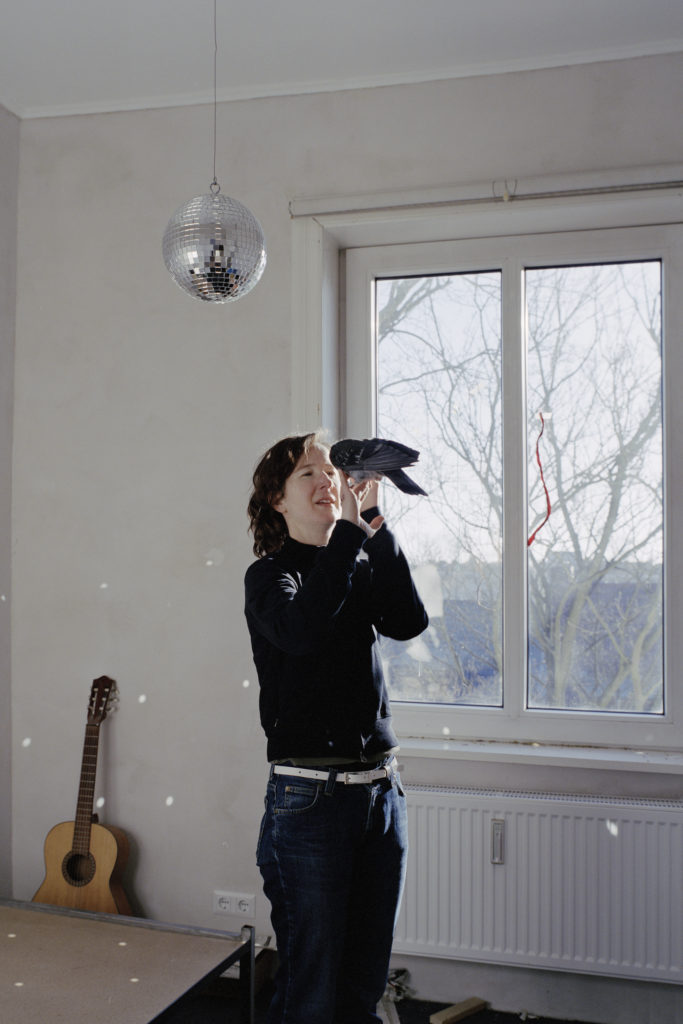
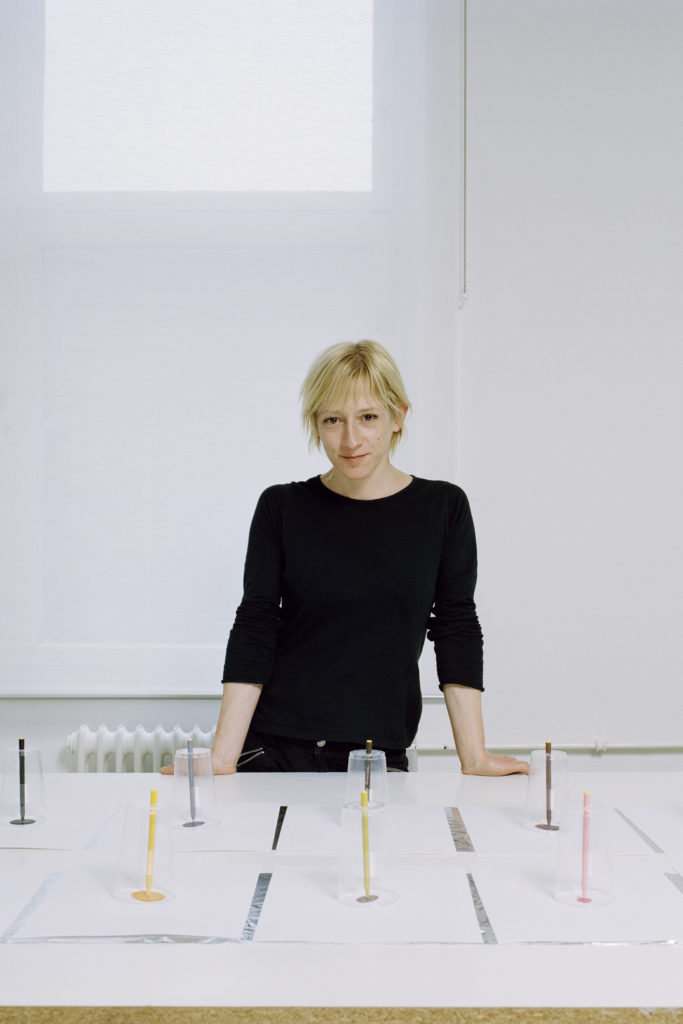
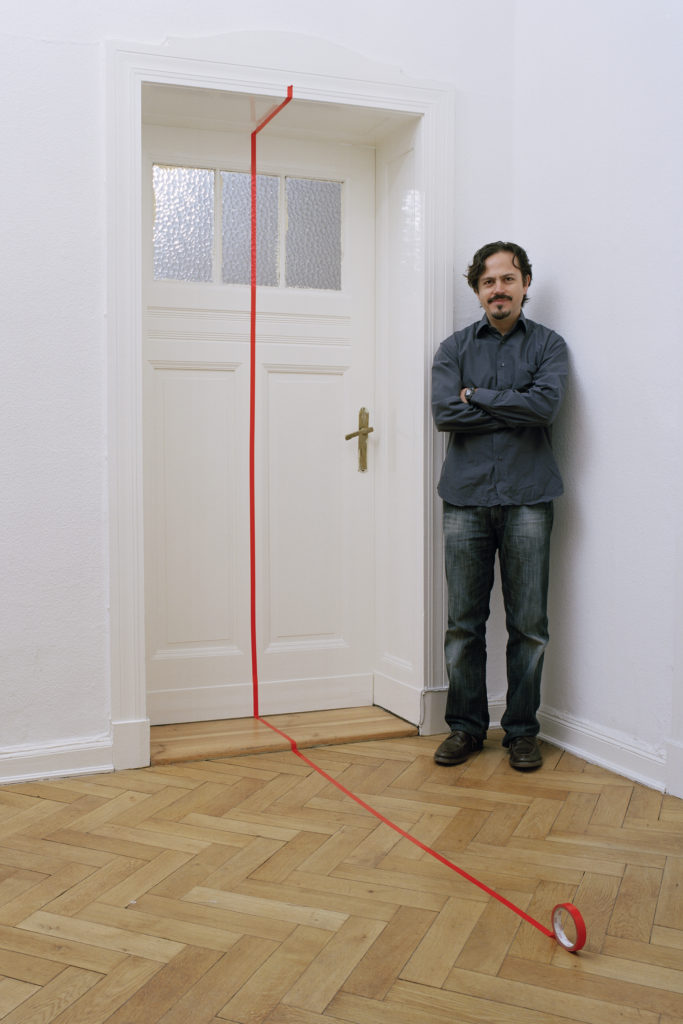
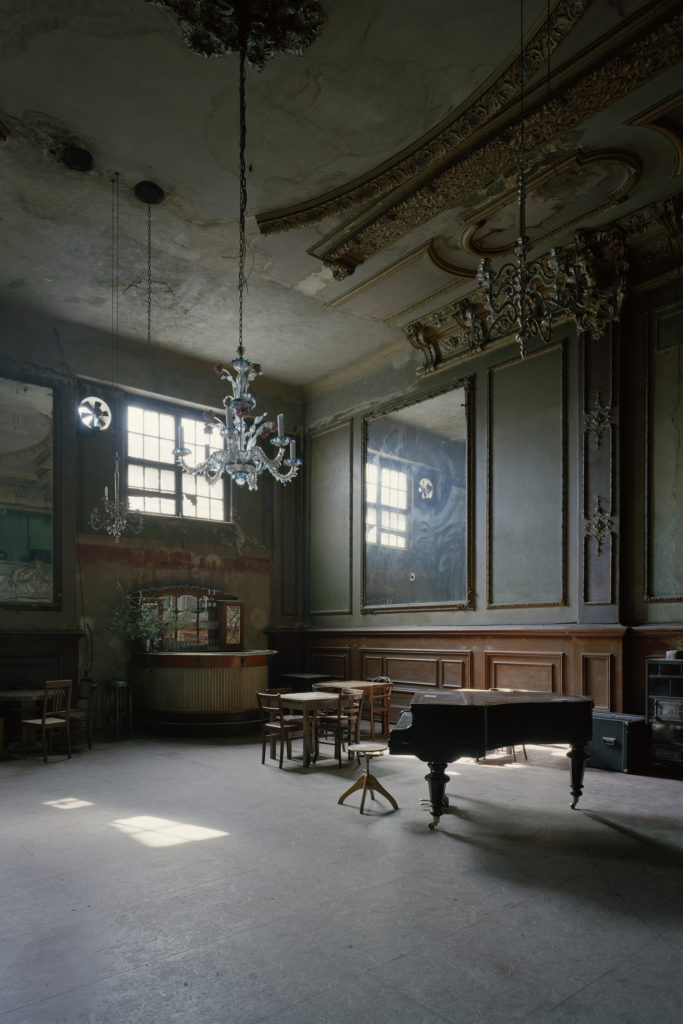
Jeanne Faust
Ceal Floyer
Damián Ortega
Tino Sehgal
Shortlist exhibition
14 September – 4 November 2007
Hamburger Bahnhof – Museum für Gegenwart – Berlin
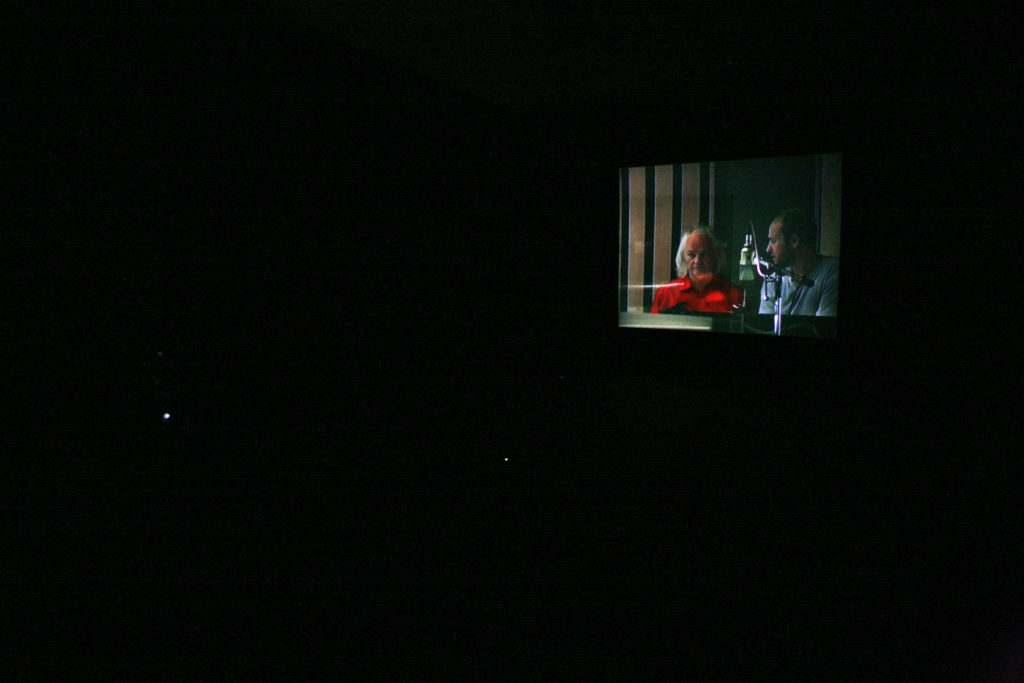
Two men in a sparsely lit sound studio, filmed with a static camera through a pane of glass. A taciturn dialogue unfolds between the men, father and son, full of tension and suppressed aggression. One suspects a conflict, intensified by the actors who join in later. The background to their conversation remains open, however, as does the question of whether we are witnessing the dubbing of a film or watching a film in which this scene occurs. The Mansion / Das Haus by Jeanne Faust stages a skilful game between allusion and meaning, it lays tracks into the genre of the gangster film, but keeps the cinematic plot in abeyance. The dialogue, whose sentences you think you know from other films, is structured similarly to the guitar canon that begins afterwards: it circles around and varies the implied theme – and allows language to become the actual protagonist in its use as a means of power and as an expression of changing hierarchical structures.
The title of this acoustic-visual installation is ambiguous: Scale means the physical scale as well as the musical scale, the visual as well as the acoustic ascent. Ceal Floyer places 24 loudspeakers on a wall in the formal shape of a staircase. From each loudspeaker, the sound of stepping on a staircase can be heard. However, Floyer stages the sound of the technical device more than the treading noises, from which no story can be developed. In this minimalist installation, the artist arranges a choreography of perception – of sound, of visual art and of spatial assemblies.
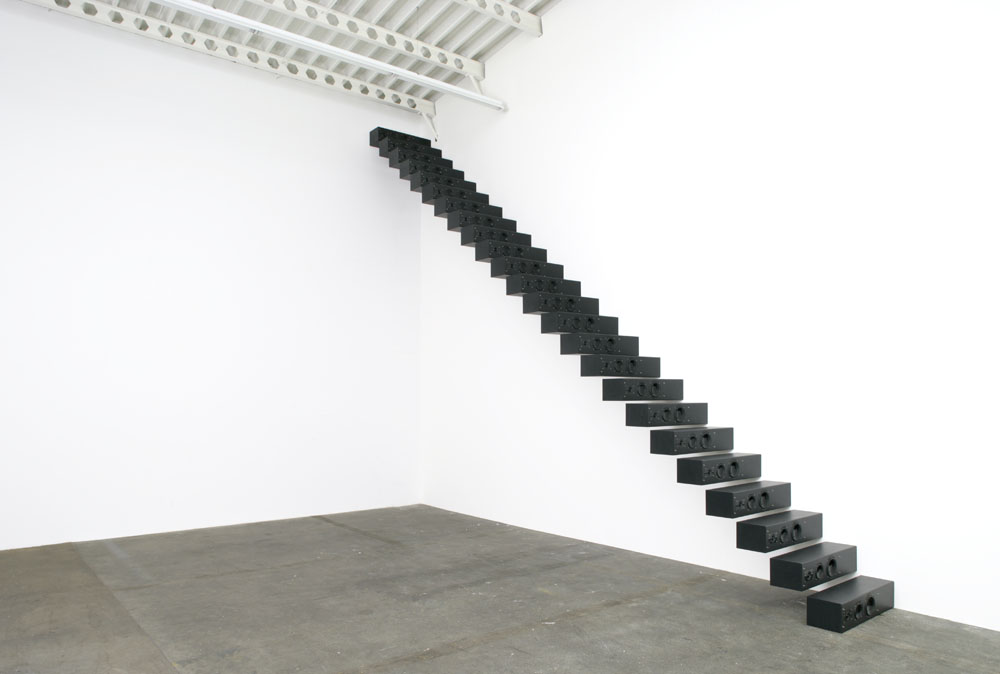
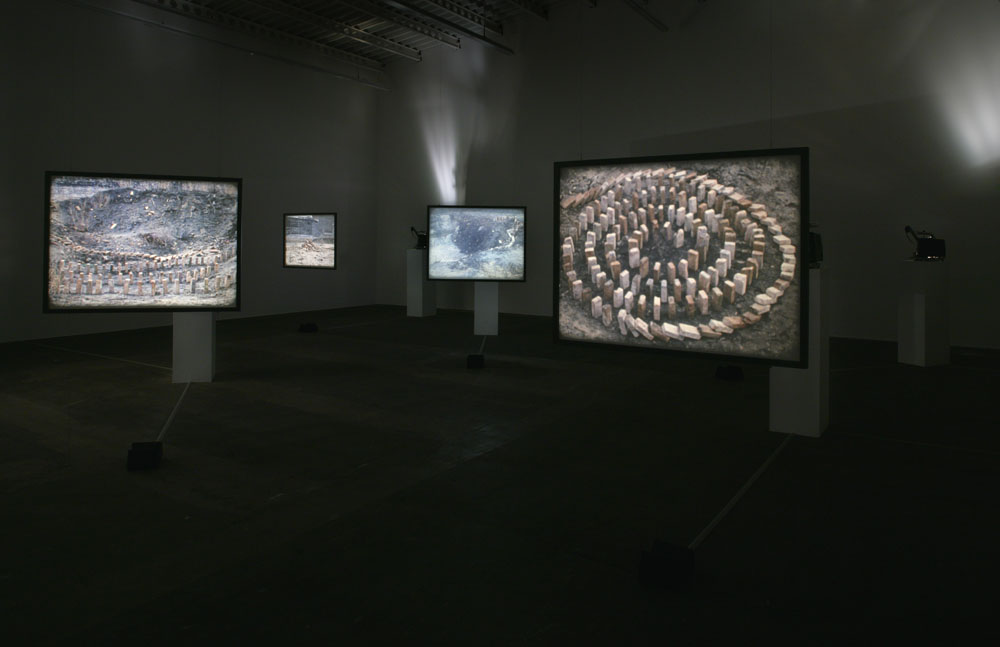
Sculpture, this medium that is actually so immediate and tangible, appears elusive in Damián Ortega. Bricks that have been set up appear as geometric structures that playfully disintegrate. Filmed and transferred into the exhibition space, these moving objects gain a new, abstract volume. The artist filmed the used bricks, charged with past building history, on wastelands in Berlin-Mitte, places that themselves stand for upheaval and dissolution. With the placement of the stones and the title of the work, he refers to the famous Chinese treatise The Art of War by Sun Tzu. The disintegration of ‘positions’ and the repeated raising of them in the filmic loop refers to the endlessness of violence and war. Simple, indestructible stones become symbols of the fragility of life.
The art of Tino Sehgal takes shape solely in the moment when the viewer encounters it. Performed by interpreters (collectors, children, museum guards, etc.), his works exist as situations grounded in fleeting gestures, in movements or spoken words with which the viewer is confronted. In his works, the artist thus replaces the production of objects with works embedded in body, space and time, which function like objects in exhibitions, museum collections and on the art market, but are in fact not objects. They exist only as a situation, in exchange, transformation, memory and transience.
First Jury
Yilmaz Dziewior
Ulrike Groos
Jens Hoffmann
Second Jury
Christian Boros
Lynne E. Cooke
Charles Esche
Gabriele Knapstein
Angela Schneider